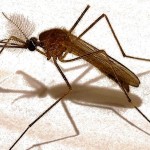 Scientists undertaking a “Herculean study” in malaria parasite development recently announced that they are getting closer to disrupting the lifecycle of the parasite—one of the world’s deadliest diseases.
Scientists undertaking a “Herculean study” in malaria parasite development recently announced that they are getting closer to disrupting the lifecycle of the parasite—one of the world’s deadliest diseases.
Researchers from the University of Nottingham’s School of Life Sciences, Medical Research Council’s National Institute for Medical Research (MRC-NIMR), Oxford University, Imperial College and King Abdullah University of Science and Technology in Saudi Arabia examined the roles played by the 30 protein phosphatases and 72 kinases—enzymes that switch on the proteins—as the malaria parasite develops in the human body and in the mosquito gut, Science Daily reports.
Rita Tewari, a scientist at the University of Nottingham, said the study identifies how protein phosphatases regulate parasite development. According to Tewari, if scientists can discover which proteins are essential for malaria development, they may be able to target the proteins with anti-malarial drugs.
“Interestingly, out of the [14] genes that could be knocked out, six were found to be crucial for sexual development and hence could be drug targets for parasite transmission to and from the mosquito,” Tewari said, according to Science Daily. “The research gathered here using the mouse malaria parasite can be directly related to the human malaria parasite, as many of the genes share a very similar homology and symptoms of the diseases are very similar.”
Malaria remains one of the most deadly diseases in the developing world, affecting up to 500 million people every year, resulting in death for up to one million.
In human beings, the deadliest form of malaria is caused by the parasite Plasmodium falciparum. When a female mosquito bites and consumes infected blood, parasite fertilization occurs in the mosquito’s gut, Science Daily reports.
The parasite then colonizes the mosquito, moving to the salivary glands, where it can be transmitted to humans through a mosquito bite. Parasites are released into the human bloodstream within 48 hours, causing high fever, sickness and, potentially, death.
“Resistance to anti-malarial drugs is increasing,” Tewari said, according to Science Daily. “As a result, the race to uncover new vaccines and more effective drugs to treat disease and block malaria transmission is becoming ever more important.”
Source: Vaccine News daily

















